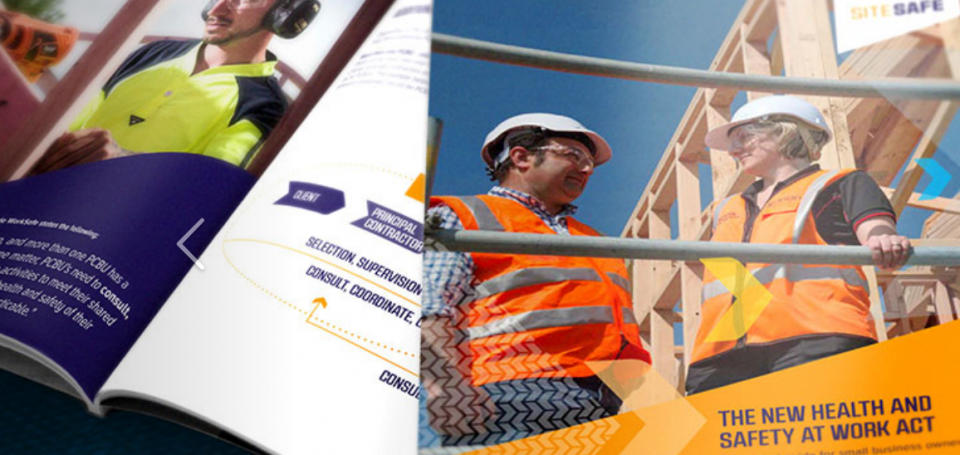The membership organisation has designed a new range of courses which are tailored to specific health and safety topics, so trainees will now have even more choice when renewing their Site Safety Card/Passport.
Chief Executive Alison Molloy says the changes are all about giving trainees more options for basic health and safety training.
“As an organisation created by the industry, for the industry, Site Safe has listened to the industry and conducted external research to better understand what is required by way of better health and safety training for workers on construction sites.
“The new courses are cost-effective options that will offer trainees more variety and more flexibility.”
The new Passport Plus courses are all four hours long and are delivered face-to-face.
There are three Passport Plus courses available for online booking from December 1.
- Passport Plus: Tools, plant and equipment
- Passport Plus: Height
- Passport Plus: Worker Health
Site Safe has also developed a new Foundation Passport course for workers new to the industry, which will be available in two options: building/construction and civil.
The Foundation Passport introduces key topics such as behavioural safety, risk assessment and legal requirements, as well as important technical risks and hazards.
Successful completion of either a Foundation Passport course, a Passport Plus course or an existing one or two-day course will renew Site Safety Cards/Passports.
From December 1, the existing Maintenance Passport course will now be incorporated into the Foundation Passport in Building Construction.
The existing Electrical Passport and Consultants’ Passport will still be offered. The launch of the new Passport courses will be followed by the introduction of blended online renewal modules in 2017.
What is a Passport course?
Most of New Zealand’s major contractors have adopted the Site Safety Card/Passport as a standard of entry to their sites.
Over 60,000 New Zealand construction workers a year attend a passport course.
Adopting the Site Safety Card/Passport as a site requirement is one way an employer, person in charge of a business or undertaking (PCBU) or other client can work towards meeting their responsibility to ensure workers and contractors are not harmed while carrying out their work.
Site Safe’s entry-level Foundation Passport courses are designed to ensure that all workers on site have a basic understanding of health and safety responsibilities.
What’s in the Passport courses?
As well as introducing targeted technical risks and hazards, both the Foundation Passport and the Passport Plus courses include a two-hour safety behaviour module.
This module includes topics such as the reasons for staying safe, shaping health and safety culture, health and safety conversations and how to take action.
What do trainees get out of Passport courses?
As well as receiving a Site Safety Card/Passport upon successful completion of the course, trainees receive four Licensed Building Practitioner points and three credits towards the Certificate in Construction Site Safety.
Site Safety Cards/Passports are valid for two years.
Site Safe’s Passport courses at a glance
1. Entry-level courses for those new to the industry or health and safety training:
The Foundation Passport in Building Construction
A four-hour safety behaviour course which helps trainees understand their basic health and safety responsibilities and improves their health and safety awareness.
The course covers:
- The reasons for being safe
- Shaping health and safety culture
- Health and safety conversations
- How to take action
The course provides a brief introduction to:
- Working at height
- Mobile elevating work platforms
- Scaffolding
- Harness safety
- Hazard identification
- Noise
- Manual handling
- Risk assessment
- Worker engagement
The Foundation Passport Civil
A four-hour safety behaviour course which helps trainees understand their basic health and safety responsibilities and improves their health and safety awareness.
The course covers:
- The reasons for being safe
- Shaping health and safety culture
- Health and safety conversations
- How to take action
The course provides a brief introduction to:
- Chemicals
- Working on the road
- Excavations and trenches
- Mobile plant and equipment
- Hazard identification
- Noise
- Manual handling
- Risk assessment
- Worker engagement
2. Passport Plus course options:
Passport Plus: Heights
Features a two-hour technical module introducing:
- Hazard and risk
- Ladder safety
- Scaffolds (mobile and standing)
- Safe use of mobile elevating working platforms
The course also includes a two-hour Safety Behaviour Module which helps trainees understand their basic health and safety responsibilities and improves their health and safety awareness.
Passport Plus:
Worker Health
Features a two-hour technical module introducing:
- Chemicals
- Dust
- Noise
- Stress and fatigue
- Violence and bullying
The course also includes a two-hour Safety Behaviour Module which helps trainees understand their basic health and safety responsibilities and improves their health and safety awareness.
Passport Plus: Plant, tools and equipment
Features a two-hour technical module introducing:
- Hazards relating to tools
- Safe use of tools
- Working around plant
- Working around equipment
The course also includes a two-hour Safety Behaviour Module which helps trainees understand their basic health and safety responsibilities and improves their health and safety awareness.
3. Any of Site Safe’s one or two-day courses also renew Site Safety Cards/Passports.
Site Safe is a not-for-profit, membership-based organisation that promotes, inspires and supports a culture of health and safety in New Zealand construction.
For more information on the changes, visit






